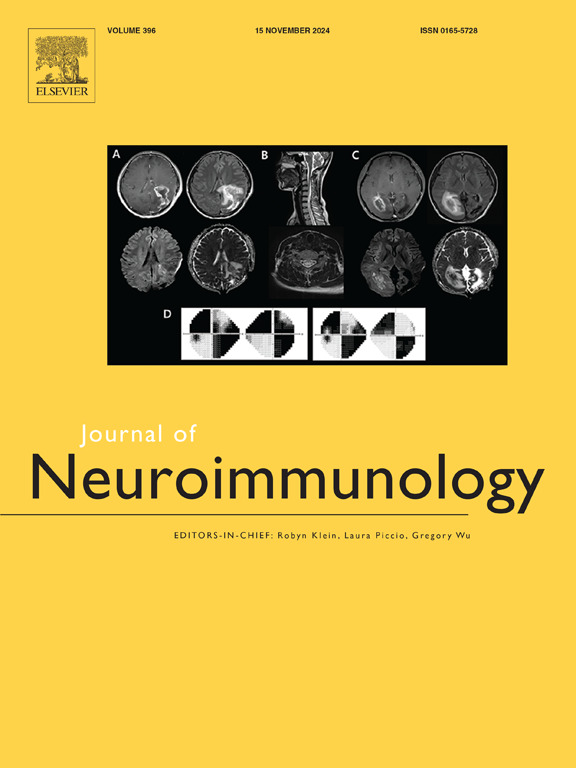Potential roles for microglia in drug addiction: Adolescent neurodevelopment and beyond
IF 2.9
4区 医学
Q3 IMMUNOLOGY
引用次数: 0
Abstract
Adolescence is a sensitive period for development of addiction-relevant brain circuits, and it is also when people typically start experimenting with drugs. Unfortunately, such substance use may cause lasting impacts on the brain, and might increase vulnerability to later-life addictions. Microglia are the brain's immune cells, but their roles in shaping neural connectivity and synaptic plasticity, especially in developmental sensitive periods like adolescence, may also contribute to addiction-related phenomena. Here, we overview how drugs of abuse impact microglia, and propose that they may play poorly-understood, but important roles in addiction vulnerability and progression.

小胶质细胞在药物成瘾中的潜在作用:青少年神经发育及以后
青春期是与成瘾相关的大脑回路发育的敏感时期,也是人们开始尝试吸毒的典型时期。不幸的是,这种物质的使用可能会对大脑造成持久的影响,并可能增加晚年成瘾的脆弱性。小胶质细胞是大脑的免疫细胞,但它们在形成神经连通性和突触可塑性方面的作用,尤其是在青春期等发育敏感时期,也可能导致成瘾相关现象。在这里,我们概述了药物滥用如何影响小胶质细胞,并提出它们可能在成瘾脆弱性和进展中发挥鲜为人知但重要的作用。
本文章由计算机程序翻译,如有差异,请以英文原文为准。
求助全文
约1分钟内获得全文
求助全文
来源期刊

Journal of neuroimmunology
医学-免疫学
CiteScore
6.10
自引率
3.00%
发文量
154
审稿时长
37 days
期刊介绍:
The Journal of Neuroimmunology affords a forum for the publication of works applying immunologic methodology to the furtherance of the neurological sciences. Studies on all branches of the neurosciences, particularly fundamental and applied neurobiology, neurology, neuropathology, neurochemistry, neurovirology, neuroendocrinology, neuromuscular research, neuropharmacology and psychology, which involve either immunologic methodology (e.g. immunocytochemistry) or fundamental immunology (e.g. antibody and lymphocyte assays), are considered for publication.
 求助内容:
求助内容: 应助结果提醒方式:
应助结果提醒方式:


